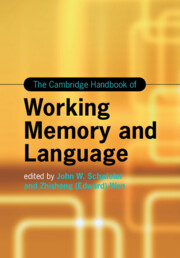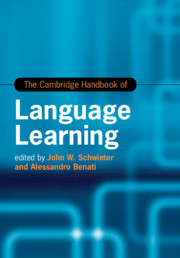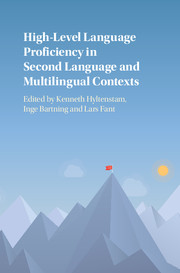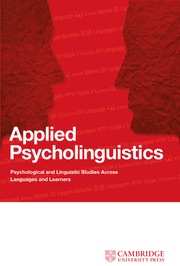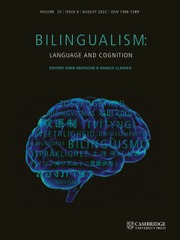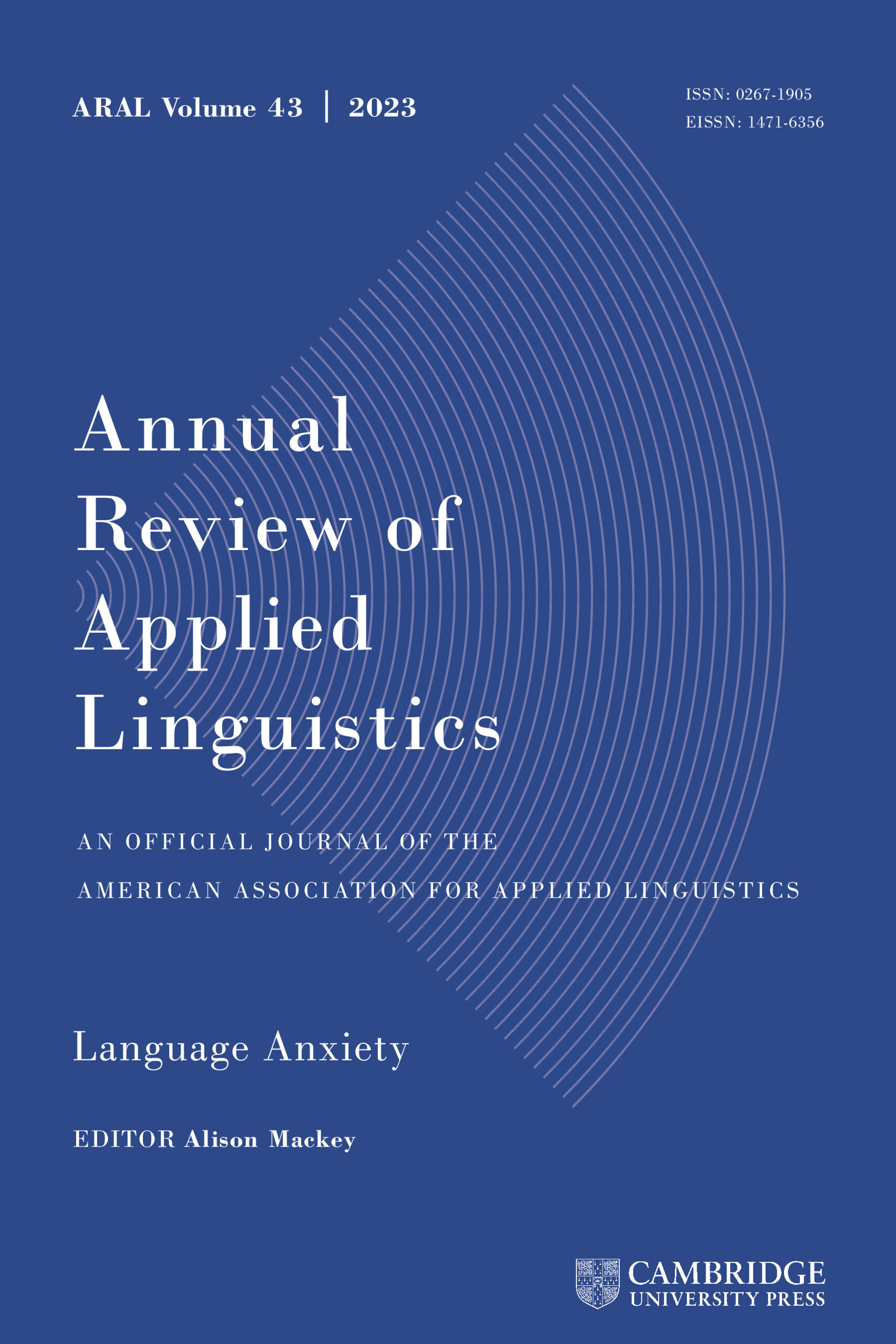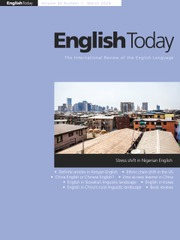The Cambridge Handbook of Working Memory and Language
Bringing together cutting-edge research, this Handbook is the first comprehensive text to examine the pivotal role of working memory in first and second language acquisition, processing, impairments, and training. Authored by a stellar cast of distinguished scholars from around the world, the Handbook provides authoritative insights on work from diverse, multi-disciplinary perspectives, and introduces key models of working memory in relation to language. Following an introductory chapter by working memory pioneer Alan Baddeley, the collection is organized into thematic sections that discuss working memory in relation to: Theoretical models and measures; Linguistic theories and frameworks; First language processing; Bilingual acquisition and processing; and Language disorders, interventions, and instruction. The Handbook is sure to interest and benefit researchers, clinicians, speech therapists, and advanced undergraduate and postgraduate students in linguistics, psychology, education, speech therapy, cognitive science, and neuroscience, or anyone seeking to learn more about language, cognition and the human mind.
- Introduces key models of working memory from cognitive science in relation to language
- Incorporates multiple perspectives from cognitive science, language sciences, neuroscience, and education
- Integrates theory, research, assessment, and practice seamlessly
Reviews & endorsements
'All you ever wanted to know about language and working memory is in this volume! Top researchers present theoretical models of working memory, cover diverse aspects of linguistic memory, and provide evidence from distinct populations (children, adults, atypical individuals, bilinguals, signers, and more). The final chapter synthesizes this work, pointing the way toward a unified theory of working memory and language.' Karen Emmorey, Distinguished Professor of Speech, Language, and Hearing Sciences, San Diego State University, United States
‘Although speakers have stored large amounts of information on the languages that they command in long term memory, a unique feature of our human language capacity is that we combine these building blocks in infinite novel ways to generate and interpret multi-word utterances. Obviously, next to retrieval of lexical information, this requires a form of working memory. Understanding the interaction between language processing and working memory would profit tremendously from bringing the separate lines of research on language and working memory together. This is exactly what this massive volume does. It is a much-needed integration of two separate research traditions in the field of cognitive (neuro)science: memory and language.’ Peter Hagoort, Director of the Max Planck Institute for Psycholinguistics and Professor of Cognitive Neuroscience, Radboud University Nijmegen, The Netherlands
'This Handbook is an unparalleled resource for researchers and graduate students with an interest in the role of Working Memory in first and second language acquisition, multilingual language use and language maintenance across the lifespan. The very latest theoretical and empirical issues involved in researching and applying findings from this important area of cognitive science enquiry to practical issues of L1 and L2 learning, practice, and retention of knowledge are addressed throughout this impressive, indispensable collection. Most highly recommended.' Peter Robinson, Professor of Second Language Acquisition, Aoyama Gakuin University, Japan
'In bringing together cutting-edge reviews focused on close links between working memory and language, John W. Schwieter and Zhisheng (Edward) Wen have bucked the trend towards fractionation and specialization in cognitive research, and demonstrated how integration and cross-fertilization of ideas offer the keys to major advances in scientific understanding. Chapters reflect the international expertise and high levels of scholarship of their authors and provide an invaluable set of resources for anyone with an interest in these core abilities of human cognition.' Robert Logie, Professor of Human Cognitive Neuroscience, University of Edinburgh
Product details
June 2024Paperback
9781108958110
973 pages
244 × 170 × 49 mm
1.641kg
Available
Table of Contents
- 1. Working memory and language: an overview of key topics
- Part I. Introduction:
- 2. Working memory and the challenge of language
- Part II. Theoretical Models and Measures:
- 3. The evolution of working memory and language
- 4. The phonological loop as a 'language learning device': an update
- 5. The Embedded-Processes Model and language use
- 6. Long-term working memory and language comprehension
- 7. The cognitive neuroscience of working memory and language
- 8. Computational models of working memory for language
- 9. The time-based resource sharing model of working memory for language
- 10. The Ease of Language Understanding Model
- 11. Assessing children's working memory
- 12. Measuring individual differences in working memory capacity and attention control and their contribution to language comprehension
- Part III. Linguistic Theories and Frameworks:
- 13. Have grammars been shaped by working memory and if so, how?
- 14. Branching and working memory: a cross-linguistic approach
- 15. Working memory and natural syntax
- 16. The role of working memory in shaping syntactic dependency structures
- 17. Working memory in the Modular Cognition Framework
- 18. Short-term and working memory capacity and the language device: chunking and parsing complexity
- Part IV. First Language Processing:
- 19. Working memory in word reading
- 20. The role of working memory in language comprehension and production: evidence from neuropsychology
- 21. Working memory and high-level text comprehension processes
- 22. Working memory and speech planning
- 23. How do novice and skilled writers engage working memory?
- Part V. Bilingual Acquisition and Processing:
- 24. How measures of working memory relate to L2 vocabulary
- 25. Working memory and L2 grammar development in children
- 26. Working memory and L2 grammar learning among adults
- 27. Working memory and L2 sentence processing
- 28. Methodological issues in research on working memory and L2 reading comprehension
- 29. Working memory and second language speaking tasks
- 30. Working memory in second language interaction
- 31. Working memory and interpreting studies
- 32. A methodological synthesis of working memory tasks in L2 research
- Part VI. Language Disorders, Interventions, and Instruction:
- 33. Specific learning disorders as a working memory deficit
- 34. A new perspective on the connection between memory and sentence comprehension in children with developmental language disorder
- 35. Working memory and childhood deafness
- 36. Working memory training in the classroom
- 37. Working memory and classroom learning
- 38. Cognitive load theory and instructional design for language learning
- 39. Working memory training: meta-analyses and clinical implications
- Part VII. Conclusion:
- 40. Towards an integrated account of working memory and language
- Index.

